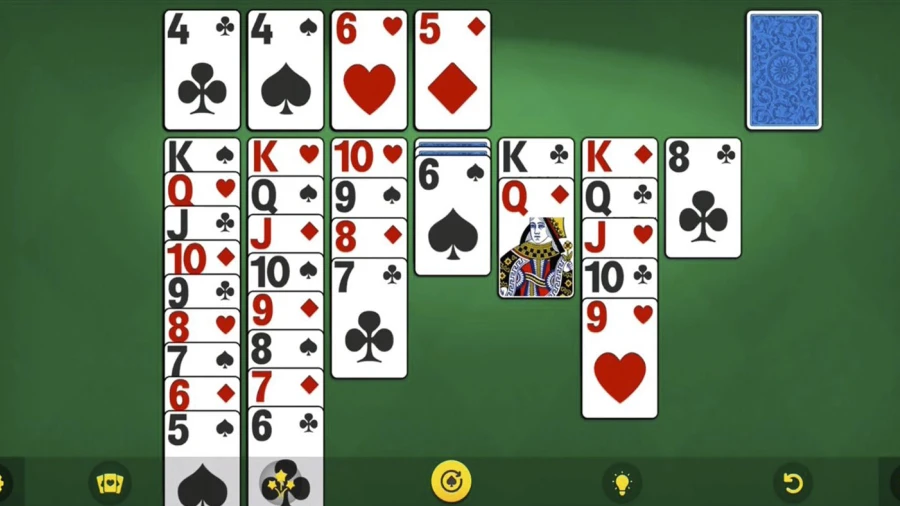Solitaire, a timeless card game, has captivated players across generations. It’s not just a way to pass the time; it’s a game that hones your strategic thinking and sharpens your mind. Whether you’re a beginner or someone looking to refine your skills, mastering Solitaire requires patience, practice, and a deep understanding of the game’s nuances.
The Evolution of Solitaire
A Brief History of Solitaire
Solitaire, also known as Patience in some regions, has a rich history dating back to the late 18th century. Originating in Europe, the game became popular in France before spreading across the globe. Initially, it was a game of patience played by royalty and aristocrats. However, its appeal quickly grew, making it a household favorite. The game’s simplicity, coupled with its challenging nature, made it a staple in homes and, later, in the digital world.
Solitaire in the Digital Age
The advent of computers in the late 20th century brought Solitaire to the masses. Microsoft Windows included Solitaire as a built-in game, introducing it to millions of users worldwide. The game’s popularity was greatly increased by this action, and it is now among the most played computer games ever. Players can now enjoy the game of Solitaire anytime, anywhere, on a variety of platforms, including desktop computers and mobile devices.
Strategies for Mastering Solitaire
Developing a Winning Strategy
Mastering Solitaire is not just about luck; it’s about strategy. Every move you make can either bring you closer to victory or set you back. The key to success is planning your moves in advance. Always think a few steps ahead, considering the potential outcomes of each move. This foresight will help you avoid dead ends and maximize your chances of winning.
- Focus on Uncovering Hidden Cards: One of the primary goals in Solitaire is to uncover hidden cards. Prioritize moves that reveal these hidden cards, as they often hold the key to unlocking new opportunities.
- Build Foundations Quickly: As soon as you can, start building your foundations by stacking cards in ascending order. This not only clears space on the tableau but also brings you closer to winning the game.
- Manage Your Tableau Wisely: The tableau, or the main playing area, is where most of the game’s action takes place. Keep your tableau organized, and try to create empty columns as quickly as possible. These empty columns can be used to move Kings and other sequences, giving you more flexibility.
Timing and Patience
While speed can be an advantage, especially in timed versions of Solitaire, patience is often more critical. Rushing through the game can lead to mistakes that could have been avoided with a more thoughtful approach. Take your time to consider all possible moves before making a decision. Remember, every move counts.
- Don’t Rush: It’s easy to get caught up in the excitement of the game and start making moves without thinking. However, this often leads to mistakes. Take your time and think through each move carefully.
- Use the Undo Button Wisely: Many digital versions of Solitaire offer an undo button. While it’s tempting to use it frequently, try to rely on it as little as possible. Using the undo button too often can prevent you from learning from your mistakes.
Balancing Skill and Luck
Solitaire is a unique blend of skill and luck. While you can’t control the shuffle of the deck, you can control how you respond to it. Accept that not every game is winnable, and focus on improving your strategy rather than just aiming for a win every time.
- Adapt to the Game: Each game of Solitaire is different, requiring you to adapt your strategy accordingly. Be flexible and ready to change your approach based on the cards you’re dealt.
- Learn from Every Game: Whether you win or lose, there’s always something to learn from each game of Solitaire. Analyze your moves and think about what you could have done differently to improve your performance.
Advanced Techniques for Solitaire Experts
Mastering the Art of Sequencing
Sequencing is one of the most critical skills in Solitaire. Properly managing your sequences can make or break your game. The goal is to create long sequences in descending order, alternating between red and black cards. Doing this efficiently can help you clear the tableau faster and create more opportunities to win.
- Create Longer Sequences: Longer sequences are often more beneficial than shorter ones. They allow you to move more cards at once, freeing up space on the tableau and giving you more options for future moves.
- Plan for Kings: Kings are unique in Solitaire because they can only be placed in empty columns. Plan your sequences with Kings in mind, ensuring you have space available when they appear.
Managing Your Stockpile
The stockpile, or draw pile, is where you draw additional cards during the game. Managing this pile effectively is crucial to your success in Solitaire. While it may be tempting to draw cards rapidly, taking a measured approach can often yield better results.
- Save Key Cards for Later: If you draw a card that could be useful later in the game, consider holding onto it until the right opportunity arises.
- Avoid Overusing the Stockpile: Each time you cycle through the stockpile, you lose some flexibility in your game. Try to make the most of the cards you have in play before drawing new ones.
Overcoming Challenging Layouts
Some games of Solitaire present particularly challenging layouts that require extra skill and strategy to overcome. These layouts often have fewer moves available, making it harder to progress. When faced with such a layout, take your time to analyze the situation and consider all possible moves.
- Break Down the Problem: If a layout seems particularly challenging, break it down into smaller, more manageable problems. Focus on clearing one part of the tableau at a time rather than trying to tackle everything at once.
- Stay Persistent: Challenging layouts can be frustrating, but persistence is key. Keep experimenting with different strategies until you find one that works.
The Psychological Benefits of Playing Solitaire
Enhancing Cognitive Function
Solitaire is more than just a game; it’s a workout for your brain. The game requires concentration, strategic thinking, and problem-solving skills, all of which can help enhance cognitive function over time. Regularly playing Solitaire can improve your memory, increase your attention span, and even boost your mood.
- Improving Memory: Remembering which cards are in play and anticipating future moves can help improve your short-term memory.
- Increasing Attention Span: Solitaire requires sustained focus and attention, which can help increase your attention span over time.
Reducing Stress and Anxiety
In addition to its cognitive benefits, Solitaire can also be a great way to relax and unwind. The game’s repetitive nature can be soothing, helping to reduce stress and anxiety. Whether you’re playing a quick game during a break or spending an evening engrossed in a challenging layout, Solitaire offers a calming escape from the pressures of daily life.
- A Mindful Escape: Solitaire’s slow, deliberate pace encourages mindfulness, helping you stay present in the moment and forget about your worries.
- A Healthy Distraction: When you’re feeling stressed or anxious, a game of Solitaire can provide a healthy distraction, giving you a break from your thoughts and helping you relax.
Conclusion: A Journey Worth Taking
Mastering Solitaire is not an overnight accomplishment; it’s a journey that requires dedication, practice, and a love for the game. As you develop your skills, you’ll find that each game offers a new challenge and a new opportunity to grow. So, shuffle the deck, deal the cards, and embark on your skillful journey to Solitaire mastery.
Whether you’re playing for fun, relaxation, or the thrill of victory, Solitaire offers a rich and rewarding experience that continues to captivate players worldwide. So, take your time, enjoy the journey, and watch as your Solitaire skills reach new heights.










